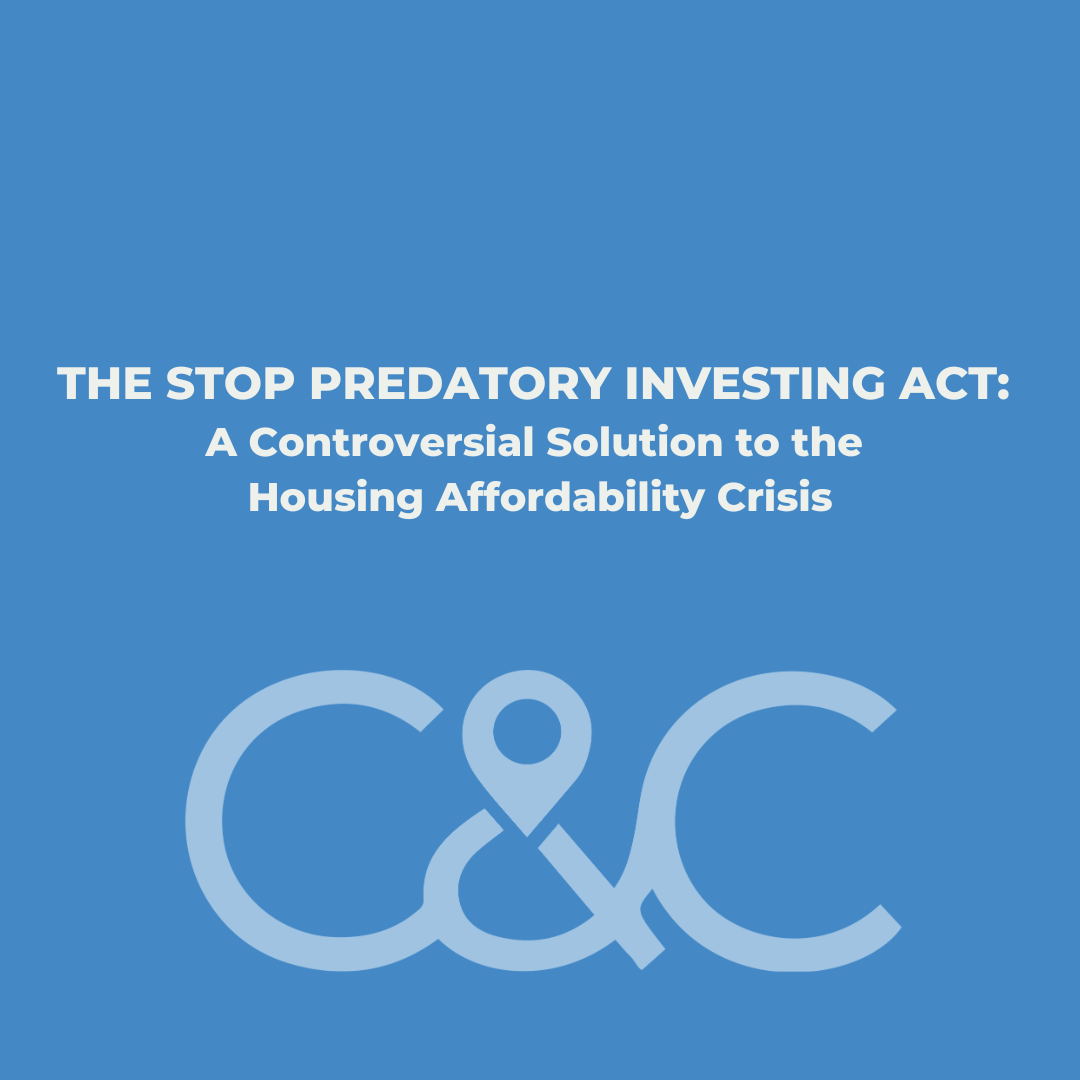The Stop Predatory Investing Act: A Controversial Solution to the Housing Affordability Crisis
As the U.S. faces a severe housing affordability crisis, lawmakers have been grappling with potential solutions to address the issue.

Recently, a new bill, the Stop Predatory Investing Act, was introduced in Congress, aiming to discourage large investors from acquiring 50 or more new single-family rental homes. The goal of the bill is to make housing more accessible and affordable for first-time homebuyers. However, like any proposed legislation, there are varying opinions on its potential impact and effectiveness.
Understanding the Bill's Provisions
The Stop Predatory Investing Act seeks to eliminate interest and depreciation deductions for investors who accumulate large portfolios of single-family rental homes. However, there are exceptions to this rule. Investors who build homes specifically for renting or finance them using Low-Income Housing Tax Credits will still be eligible for deductions. Additionally, investors selling properties to homeowners or qualified nonprofits will also be allowed deductions for the year of the sale.
Is There a Clear Culprit?
One of the key issues surrounding the bill is whether corporate investors are indeed responsible for driving up home prices. Data from various sources suggests that while large investors have had a significant presence in the market, they may not be the sole cause of soaring home prices. Experts argue that factors such as underbuilding, low mortgage rates, and demographic shifts have played a more substantial role in increasing demand and limiting supply.
The Bill's Potential Effectiveness
Supporters of the bill believe that limiting large investors' tax breaks will prevent them from further driving up housing prices and empower working families seeking affordable homes. However, there is concern that this move may not yield the desired results. A study on a similar ban in the Netherlands demonstrated that while it increased accessibility for middle-income buyers, it ultimately led to gentrification and rising rent prices without impacting overall housing prices.
Balancing Affordability for Buyers and Renters
Another aspect to consider is the impact of the bill on both prospective homebuyers and renters. Corporate investors have contributed to the rental supply, which has been crucial for many families unable to afford homeownership. By restricting depreciation deductions for large investors, the bill may create space for smaller, mom-and-pop investors to provide rental homes, potentially benefiting renters. However, the issue of excessive rents charged by large investors in some neighborhoods should also be addressed to protect renters' interests.
The Debate on the Bill's Viability
The proposed Stop Predatory Investing Act has garnered both support and opposition from various quarters. Advocates believe that it is a step towards reducing wealth inequality by limiting tax breaks for mega-investors. Others argue that it may stifle investment and economic growth, as large corporations often create jobs and contribute to the economy.
A Comprehensive Approach to Addressing the Crisis
The housing affordability crisis is a multifaceted issue that requires a comprehensive approach. While the Stop Predatory Investing Act may play a role in reducing large investors' influence, policymakers must also focus on other solutions. Reforms in zoning regulations, affordable housing programs, and measures to encourage homeownership are equally critical in addressing the root causes of the problem.
Conclusion
The Stop Predatory Investing Act is a contentious proposal with potential benefits and drawbacks. While it may curtail large investors' influence, it could also have unintended consequences on housing affordability and supply. Ultimately, addressing the housing crisis will require a combination of measures, considering the interests of both homebuyers and renters, and addressing the broader factors that contribute to the current situation. As the bill undergoes scrutiny and debate in Congress, policymakers must strive to strike a balance between promoting homeownership and ensuring accessible, affordable rental options for working families.








